Just 4 Candidates Have Specific Plans To Address The Digital Divide
Editor’s Note: this report has been updated.
On December 6th, the Sanders campaign issued a comprehensive “Internet For All” plan. This report was updated to reflect these details.
Broadband is emerging as a critical campaign issue for the U.S. 2020 presidential election, and there’s good reason: nearly 60 million people in the U.S. do not have broadband service at home. Despite this staggering fact, only four of the 14 presidential candidates we looked at have released fleshed-out policy proposals to expand broadband access (all of them democrats).
Rural communities continue to lack access to competitive, high-speed broadband. Net neutrality has become a partisan issue, and Ajit Pai has proven to be one of the most polarizing FCC chairs in recent history.
Now that the wide and diverse field of Democratic candidates has begun to narrow — and there are even a few challengers in President Trump’s corner — we’ve taken a look at how the presidential hopefuls are addressing broadband in their platforms.
On the Democratic side, broadband has become a central piece to many rural revitalization plans. But only four candidates have released detailed broadband proposals. Senators Elizabeth Warren, Amy Klobuchar and Bernie Sanders, and Mayor Pete Buttigieg have each released “Internet for all” type proposals that aim to connect all U.S. households to the Internet; while some of the other candidates, including Sen. Kamala Harris and Andrew Yang, have focused more on digital privacy policies to set them apart from the competition.
On the Republican side, issues seem to have taken a backseat to criticizing President Trump’s governing style, leaving us little information on how these candidates might address broadband.
Key Broadband Issues
We’ve selected five key broadband issues that impact Americans today, and have listed each candidate based upon whether or not that have articulated policy proposals in place for each of them. Disclaimer: For the purposes of this guide, we have included the 10 Democratic candidates who have qualified for the fall debates, the President, and the three Republican challengers to his administration.
Digital Inclusion/Closing The Digital Divide
Lack of access to broadband in rural areas has created a “digital divide” in economic and educational opportunities between rural and urban communities.
Internet Infrastructure
Expanding and improving Internet infrastructure is critical to ensuring the U.S. isn’t left behind. As of 2018, the U.S. ranked 20th in broadband speed in the world, while the FCC has described broadband prices in the U.S. as “among the worst in the developed world.”
Net Neutrality
Net Neutrality rules prevent ISPs favoring some content over other content and ensure ISPs cannot throttle traffic to certain sites or prevent users from accessing sites. Net Neutrality became a hot-button partisan issue after Obama-era FCC Chairman Tom Wheeler designated broadband a utility and subjected ISPs to regulation. The move received widespread criticism from the telecom lobby and the Republican party, and president Trump’s FCC chairman Ajit Pai repealed the rule in 2017.
Municipal Broadband
Municipalities across the country have turned to building and managing their own broadband networks in order to serve residents where commercials ISPs have failed to provide service. The issue has become a partisan one in recent years, with Republicans calling such initiatives “government overreach.”
Digital Privacy
Digital data privacy has grown in importance to U.S. consumers as data breaches and identity theft are both on the rise.
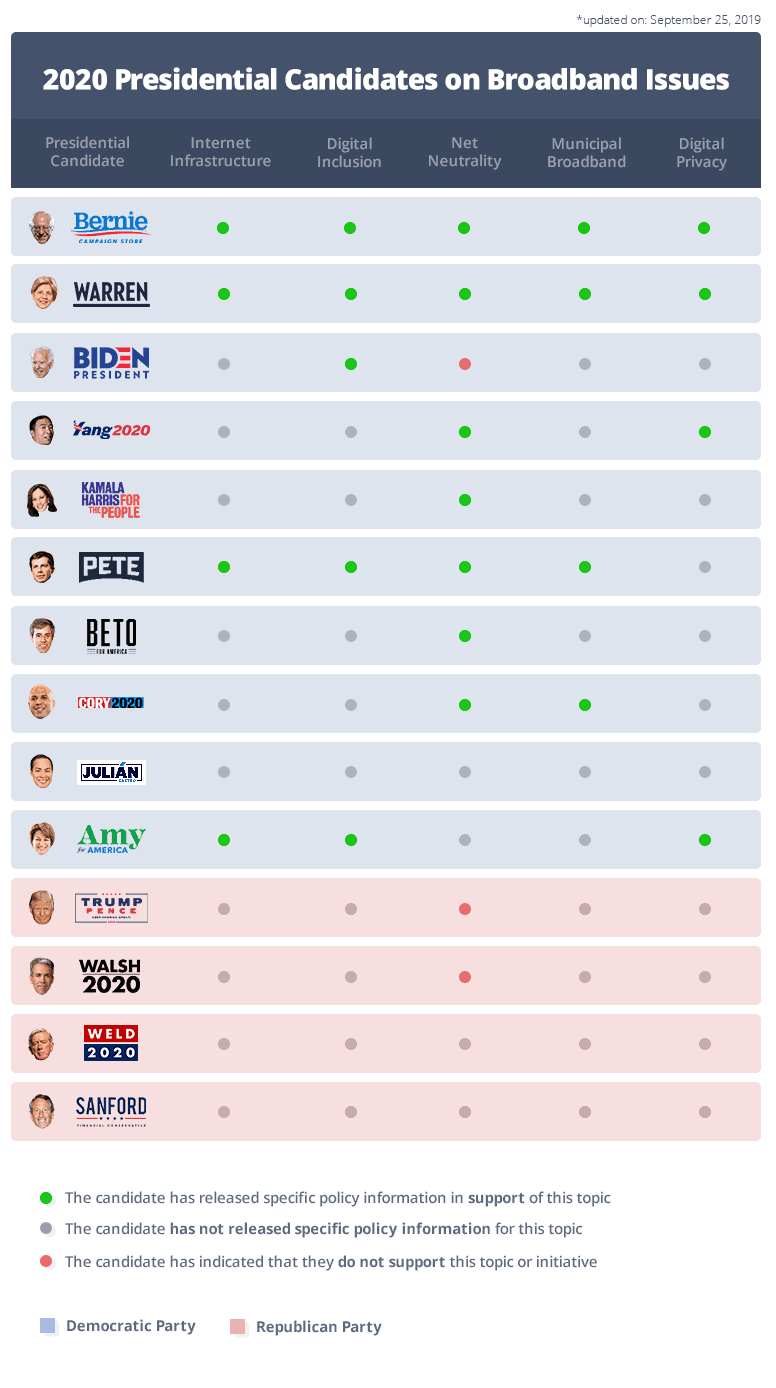
Democratic Candidates
The Democratic candidates’ policy proposals mirror a shifting Democratic base of voters. The Democrats overlap plenty on a couple of issues — many support restoring Net Neutrality, expanding broadband access in rural economies, and enacting stronger data privacy laws. But only a few of the candidates have released fleshed-out proposals for addressing broadband issues.
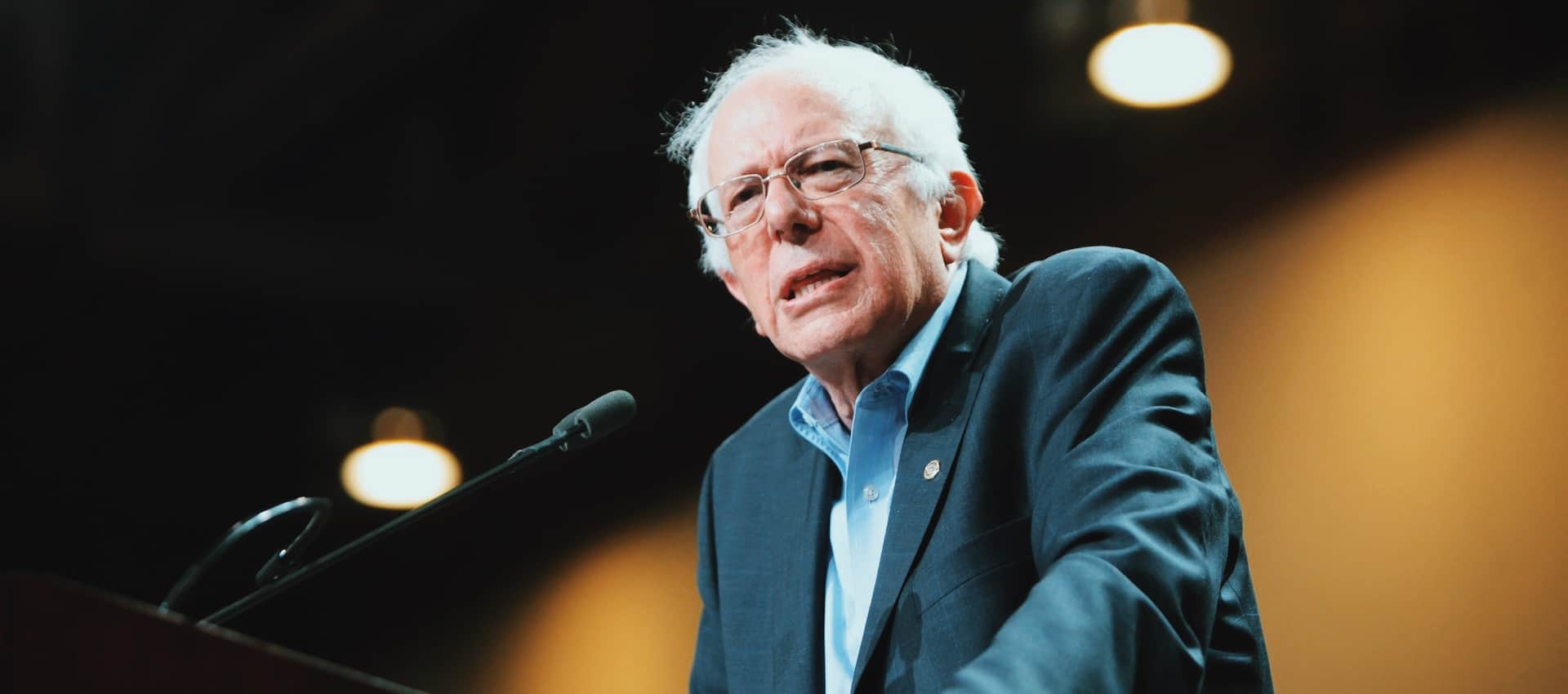
Bernie Sanders
“It is absurd that we do not have universal, high quality, affordable broadband access for every single American.”
Policy Positions Taken: 5/5
Internet Infrastructure
One of the most interesting things about Sanders’ presidential platform is that he lumps broadband investments in with his resiliency plan for adapting to climate change. He has proposed providing $130 billion for counties impacted by climate change to fund things such as water infrastructure, electric grid investments and broadband. He has also made access to affordable broadband a part of his affordable housing platform.
UPDATE: In December, Sander’s campaign released a full-fledged “High-Speed Internet for All” plan that called for, among other things, “Deliver access to high-speed broadband internet to everyone in the United States by building out the necessary resilient, modern infrastructure.” Notably, it also called for an increase of the FCC’s definition of “broadband” to 100mbps download speeds and 10mbps upload speeds, federal regulation of broadband internet rates, the banning of data caps and throttling, and the preemption of state laws that ban or restrict municipal broadband.
Digital Inclusion
Sanders wants to bring high-speed broadband access to every American in order to close the digital divide and revitalize rural communities. He supports broadband investments for targeted economic development through regional authorities and commissions such as the Delta Regional Authority and the Appalachian Regional Commission. “Quality broadband is essential for health care services, education and for the day-to-day needs of rural Americans,” his campaign website states.
The Sanders campaign has promised to provide $500 million per year for digital inclusiveness, which they state will be “distributed to schools, libraries, community centers, senior centers, and other community-based programs to promote digital literacy, adoption, and inclusivity.”
Net Neutrality
Sanders has been a staunch supporter of Net Neutrality. He was the first Democratic candidate to make protecting Net Neutrality a campaign issue for this election, and has pledged to restore Net Neutrality once in office. He has a long record of supporting Net Neutrality efforts in Congress. In 2017, he called the FCC’s vote to repeal net neutrality “an egregious attack on our democracy.” and he opposes rules that would allow ISPs to restrict content in any way. But Net Neutrality doesn’t take much space in his platform, and his website doesn’t mention it once.
Municipal Broadband
Sanders supports publicly-owned broadband networks, and has proposed $150 billion in infrastructure grants and technical assistance for municipalities and states “to build publicly owned and democratically controlled, co-operative, or open access broadband networks,” which can “ensure first responders and communities are ready to deal with the worst climate emergencies.”
His campaign has also promised to preempt laws that “limit or bar municipal and publicly-owned broadband.”
Digital Privacy
Sanders supports strong data privacy laws. In a 2017 Facebook post, Sanders stated that be believes consumer data belongs to consumers, not corporations. “Comcast and Verizon should not be able to track their customers and sell their personal information without the customers’ permission,” he said. As a Senator, Sanders also opposed government surveillance of consumer data, and voted against CISPA, FISA and the Patriot Act.
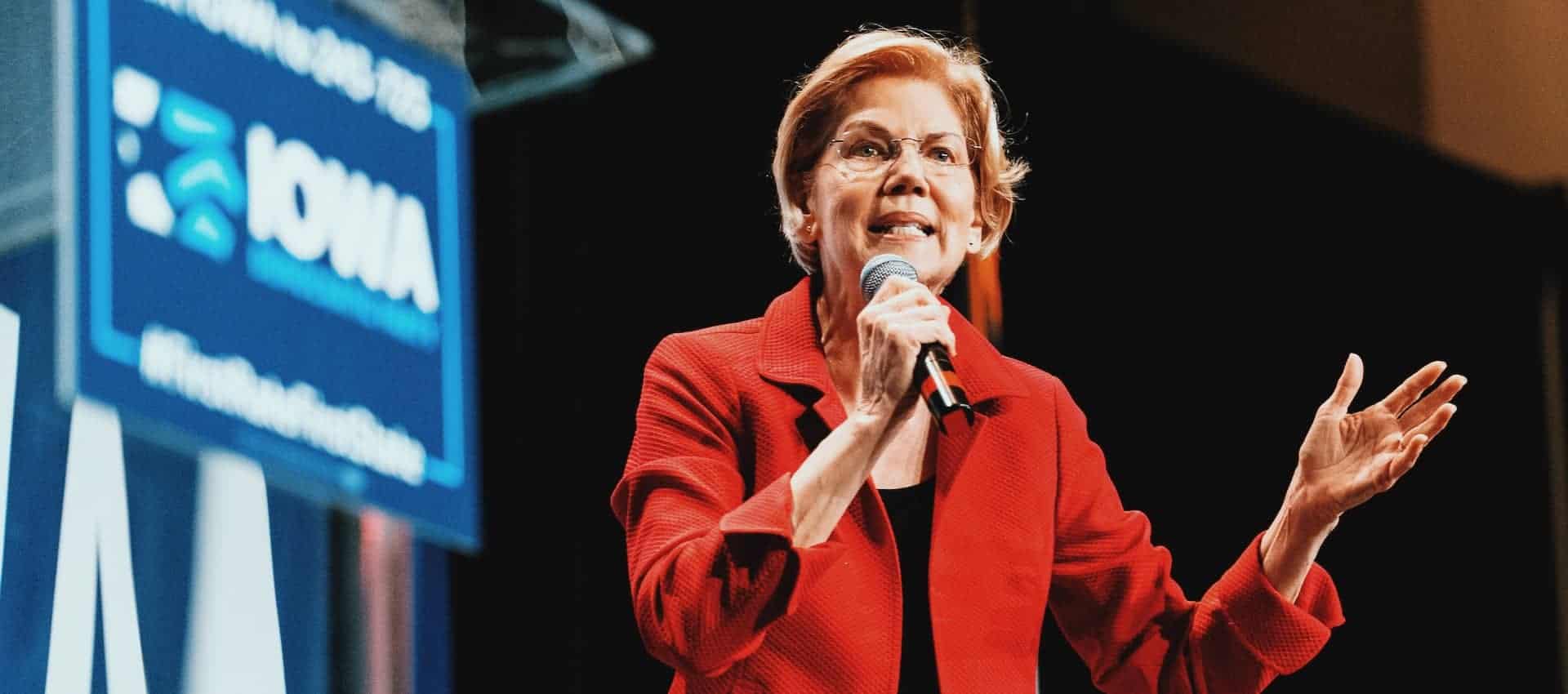
Elizabeth Warren
“The federal government has shoveled billions of taxpayer dollars to private ISPs in an effort to expand broadband to remote areas, but those providers have done the bare minimum with these resources — offering Internet speeds well below the FCC minimum. This ends when I’m President.”
Policy Positions Taken: 5/5
Internet Infrastructure
Warren has made “universal broadband access” a policy platform, and has proposed establishing an Office of Broadband Access as part of her Department of Economic Development. The office would manage an $85 billion federal grant program to “massively expand” broadband access across the country, with $5 billion allocated to tribal nations to expand broadband access on Native American lands.
Citing the lack of accuracy in FCC broadband maps, Warren has also promised to appoint FCC commissioners who will force ISPs to report better data on broadband deployments. “To provide universal broadband access and crack down on anti-competitive behaviors, the government has to know how extensive the problems are,” Warren said in a Medium post.
Warren has proposed requiring ISPs to report service and speeds “down to the household level,” and aggregate pricing data. She has pledged to make this data public and “conduct regular audits to ensure accurate reporting.” She also wants to put an end to the “sneaky maneuvers” ISPs use to reduce competition and avoid regulation, by prohibiting landlords from making side deals with private ISPs, returning control of utility poles to municipalities, and enacting Dig Once policies.
Digital Inclusion
As part of her detailed broadband policy platform, Warren has identified closing the digital divide as a key tenet of improving the economic development of rural America. Warren’s Office of Broadband Access will distribute grant money to electricity and telephone cooperatives, non-profit organizations, tribes, cities, counties, and other state subdivisions to build the fiber infrastructure to support broadband services in unserved and underserved areas, and in areas with “minimal competition.”
Net Neutrality
Calling the current FCC a “puppet to giant Internet providers,” Warren supports restoring Net Neutrality, and has promised to appoint FCC commissioners who are interested in regulating Internet service providers as “common carriers” under Title II.
Municipal Broadband
Warren supports publicly-owned broadband networks, and has proposed amending federal statute to protect municipalities’ right to build their own networks. Citing our own municipal broadband report, Warren said in a Medium post that she supports local governments building out broadband networks to serve residents. Her proposed Office of Broadband Access will distribute grants to local governments in un- and underserved areas, as well as in areas with “minimal competition.”
Digital Privacy
Warren supports stronger data privacy laws, but hasn’t proposed any specific policies for her platform. As a Senator, she introduced the Corporate Executive Accountability Act this year, a bill that would enable authorities to criminally charge company executives for personal data breaches. “When a criminal on the street steals money from your wallet, they go to jail. When small-business owners cheat their customers, they go to jail,” Warren wrote in a Washington Post op-ed. “But when corporate executives at big companies oversee huge frauds that hurt tens of thousands of people, they often get to walk away with multimillion-dollar payouts.”
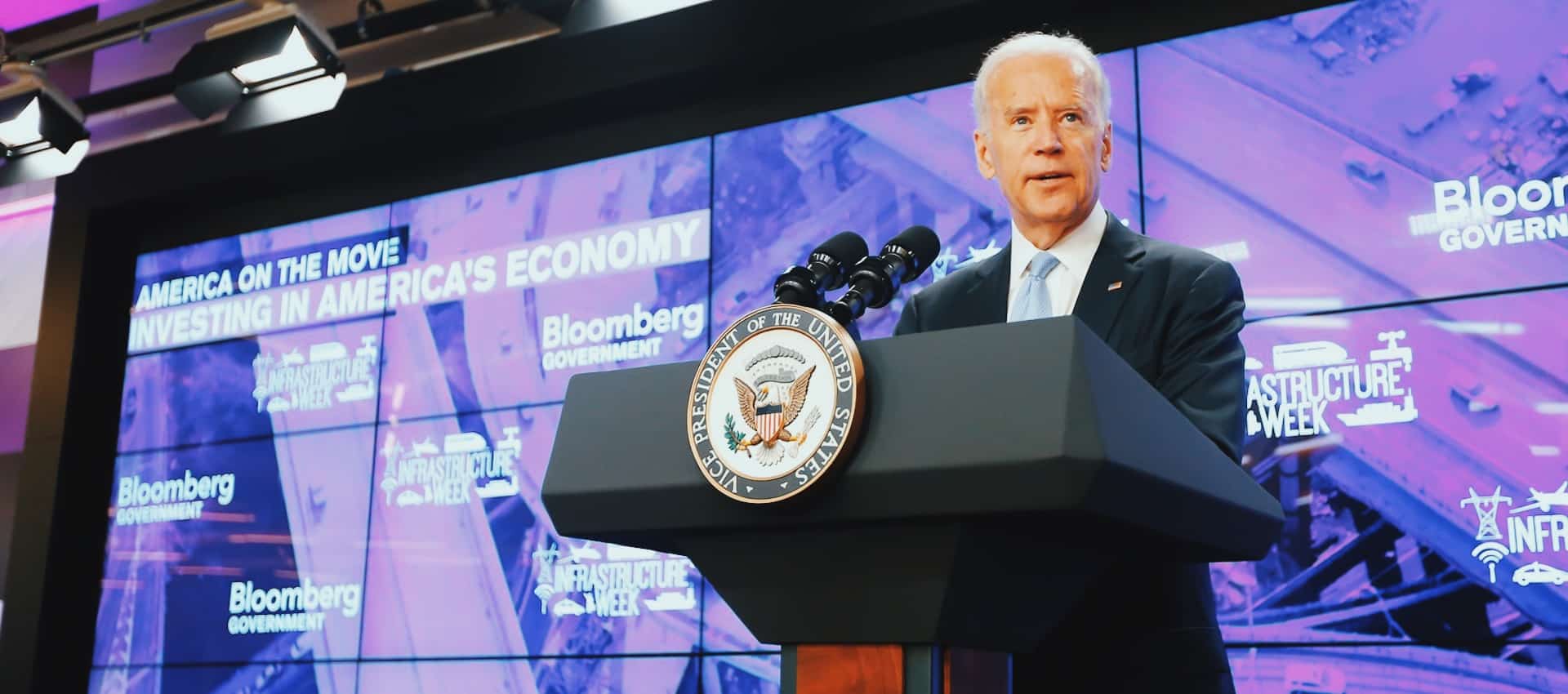
Joe Biden
“High-speed broadband is essential in the 21st Century economy.”
Policy Positions Taken: 2/5
Internet Infrastructure
Biden has a spotty record on many broadband-related issues, and hasn’t yet articulated any policy proposals for improving the FCC’s broadband map, holding ISPs accountable in infrastructure build outs, or expanding access to broadband technologies except in rural areas.
Digital Inclusion
Biden has proposed investing $20 million in rural broadband infrastructure in a bid to bring more jobs and opportunities to rural communities. He estimates that expanding broadband could create as many as a quarter million new jobs. Biden also wants to triple Community Connect broadband grants to help expand access in rural areas.
Net Neutrality
Biden hasn’t been a strong supporter of Net Neutrality in the past. He reportedly stated in 2006, when he was serving on the Senate Judiciary Committee, that preemptive laws weren’t necessary to protect Net Neutrality; and in 2007, he declined to co-sponsor the Internet Freedom Preservation Act, a bipartisan effort to amend the 1934 Communication Act to include Net Neutrality provisions. Biden has been cozy with Comcast, a staunch opponent of Net Neutrality, during his tenure in the Senate; and his first fundraiser after announcing his presidential bid was hosted by Comcast SVP David Cohen.
Municipal Broadband
Biden hasn’t explicitly taken a stance on municipal broadband, but his plan to triple the Community Connect broadband grants includes opportunities to partner with municipal utilities to serve residents.
Digital Privacy
Biden hasn’t announced any policies related to digital privacy. During his Senate years, Biden advocated for the government to monitor peer-to-peer and telecommunications activity in the name of counter-terrorism, and introduced bills that would have banned encryption. He also wanted to require communications companies to “permit the government to obtain the plaintext contents of voice, data, and other communications when appropriately authorized by law,” in an amendment added to a 1991 counter-terrorism bill.
In 1994, Biden introduced the Communications Assistance for Law Enforcement Act (CALEA), which required hardware companies to ensure equipment and services were accessible to law enforcement for surveillance. The provision was subsequently expanded to include broadband Internet and VoIP traffic.
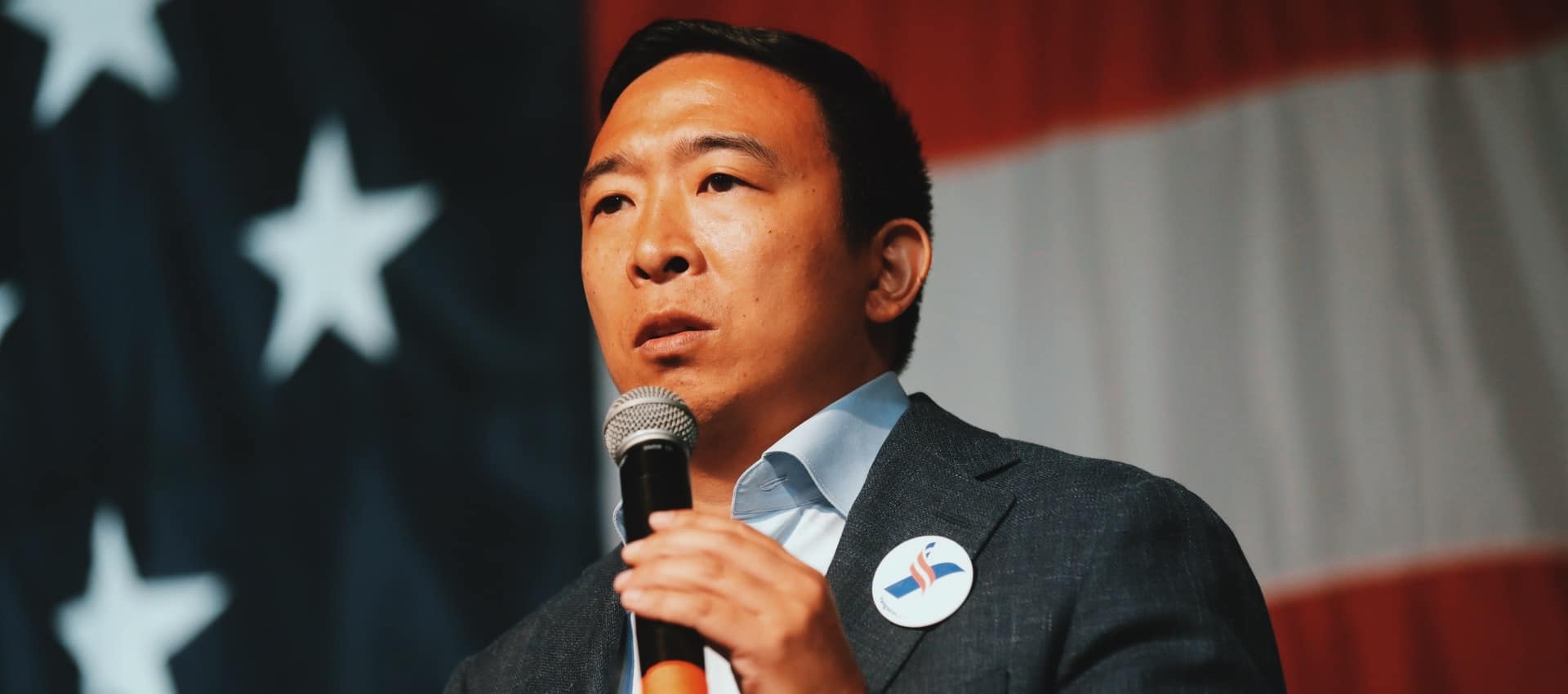
Andrew Yang
“Some of the largest tech companies can know more about us and our lives than our families and those closest to us.”
Policy Positions Taken: 2/5
Internet Infrastructure
Yang doesn’t address broadband infrastructure in his policies, but he does want to revive the Office of Technology Assessment (OTA), an agency that provided research and information on technology developments to Congress “free of the bias of private industry or think tanks.”
Digital Inclusion
Yang doesn’t address closing the digital divide in his campaign website, but on Twitter the candidate has suggested expanding access to broadband in rural areas should be done “pronto.”
Net Neutrality
Yang supports restoring Net Neutrality and wants to regulate ISPs as common carriers under Title II. Yang has also proposed increasing competition among ISPs through local-loop unbundling. “This would provide startups with access to the expensive, final wires connecting the Internet ‘backbone’ to residences so that they can innovate and compete in an otherwise stifled market,” his campaign website states. “By doing so, prices will come down away from their current monopoly levels and thus increase Internet access further.”
Municipal Broadband
No policy announced.
Digital Privacy
Yang supports strong data privacy laws to protect consumer data and wants data ownership to reside with consumers, not companies. Yang has proposed a digital privacy bill of rights for consumers as part of his vision to see data treated as property.
His consumer rights include a right to being informed as to what data will be collected, and how it will be used; the right to opt out of data collection or sharing; the right to be told if a website has data on you, and what that data is; the right to have all data related to you deleted upon request; the right to be informed of any data breaches, and the right to be alerted if ownership of your data changes hands.
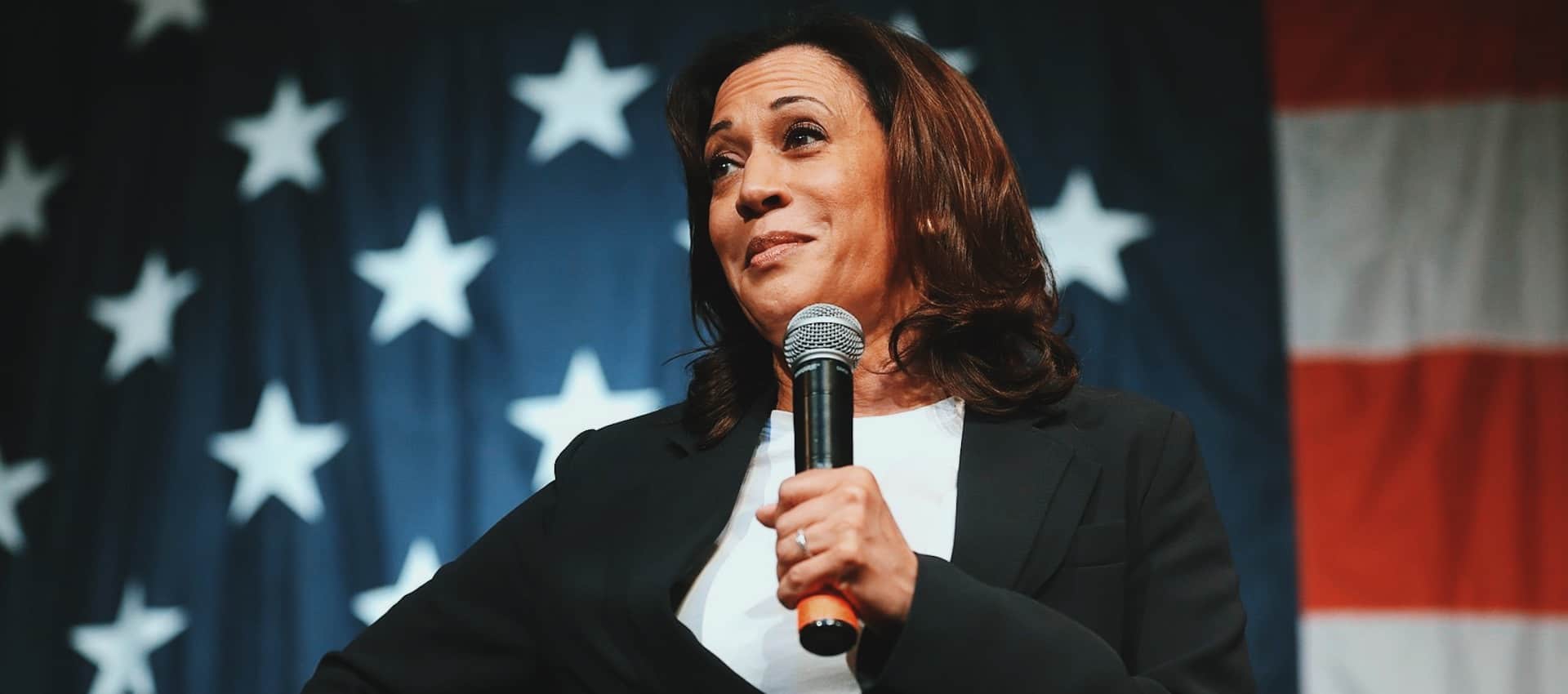
Kamala Harris
“The American people have an absolute right to the privacy of their data.”
Policy Positions Taken: 1/5
Internet Infrastructure
No policy announced.
Digital Inclusion
No policy announced.
Net Neutrality
Harris supports restoring Net Neutrality and regulating ISPs as common carriers under Title II. “Broadband providers must not be allowed to tilt the competitive playing field by blocking or throttling their competitors, prioritizing their own offerings, or otherwise unreasonably interfering with lawful content,” Harris wrote in a comment to the FCC. She added that Title II designation is “the only legal basis” for establishing protections for a free and open Internet.
Municipal Broadband
No policy announced.
Digital privacy
While she hasn’t proposed a digital privacy policy as part of her presidential bid, Harris has been a staunch advocate of data privacy since her days as Attorney General of California, when she issued guidelines for mobile app developers for developing strong privacy policies. Earlier this year, she called on the FCC to investigate allegations that carriers were selling consumer location data to third party companies. She has also spoken out against the use of facial recognition technology for its vulnerability to bias.
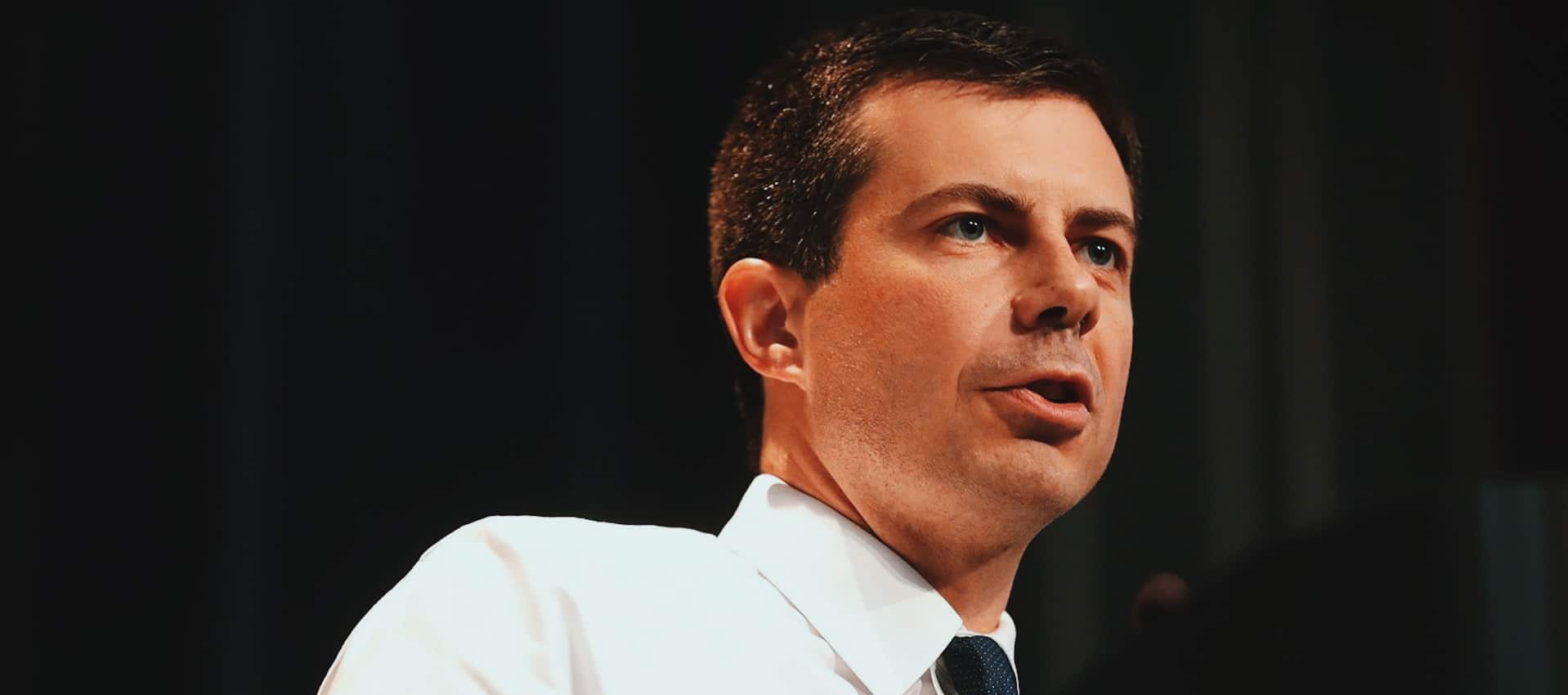
Pete Buttigieg
“The Internet is the highway of the 21st century. Yet 1 in 5 Americans — roughly 60 million people — still lack Internet access in their homes.”
Policy Positions Taken: 4/5
Internet Infrastructure
Buttigieg has proposed an “Internet for All” initiative that would see all communities have access to affordable, high-speed broadband. The $80 billion plan would include investments in technologies such as 5G wireless, satellite Internet and smart infrastructure. Buttigieg wants to require ISPs to submit detailed coverage data with speeds and average prices, “so that proper oversight is possible,” including “ensuring that firms are not prioritizing high- income areas over low-income areas or perpetuating any other form of discrimination in access.”
He would also like to see the Department of Justice conduct post-merger reviews to hold ISPs accountable to their merger promises in terms of broadband buildouts. Buttigieg has pledged to appoint an FCC chair “who is committed to using better data to provide more equitable coverage.” Buttigieg’s plan would also see the nation’s 911 infrastructure upgraded to support texting and video streaming for first responders and 911 call centers.
Digital Inclusion
Buttigieg envisions creating a network of “connected” rural communities to bolster economic development in rural areas, as well as ensure equitable access to infrastructure, including broadband. He has pledged to close the “homework gap” in his first term in office, should he be elected, citing data showing that millions of families with school-age children do not have Internet access at home, while 70% of teachers in the U.S. assign homework that requires Internet access to complete.
Buttigieg wants to streamline FCC approval processes and leverage the federal E-Rate program for expandings Internet access in classrooms, and he has proposed using E-Rate funds to support off-campus Internet uses, such as providing Wi-Fi on school buses for children who spend hours commuting to and from school. Buttigieg has also proposed establishing a digital device fund focused on providing computers to students attending low-income schools.
Net Neutrality
Buttigieg supports Net Neutrality, but doesn’t think another FCC resolution on resotring Title II designation for ISPs will provide a lasting solution. Instead, Buttigieg would like to see the issue addressed in legislation. His Internet for All initiative would also require that ISPs receiving funds to expand broadband access follow “strict open Internet rules that prohibit the blockage or throttling of websites and services.”
Municipal Broadband
Buttigieg supports publicly-owned broadband networks in areas lacking service, but also supports incentives for private ISPs to build out broadband networks in underserved areas. He plans to invest in public and community-based options for communities that ISPs won’t serve, and has pledged to work with state and local governments “to invest billions of dollars directly in community-driven broadband networks,” including public-private partnerships, rural co-ops or municipally owned broadband networks. He has also proposed launching a program within the Department of Commerce modeled after the Tennessee Valley Authority to help expand broadband options for residents.
Buttigieg wants to create a Broadband Innovation Incubator, under the National Telecommunications and Information Administration (NTIA), that would provide technical assistance, share best practices and provide startup funding for small community-owned networks. And citing our own municipal broadband report, Buttigieg has pledged to work with members of Congress to pass legislation that prevents state governments from adopting laws that prevent municipalities and co-ops from building out their own broadband networks. He would also like to see electric co-ops, which often provide broadband service in rural communities, become eligible to receive FCC and other federal grant money.
Digital Privacy
No policy announced.
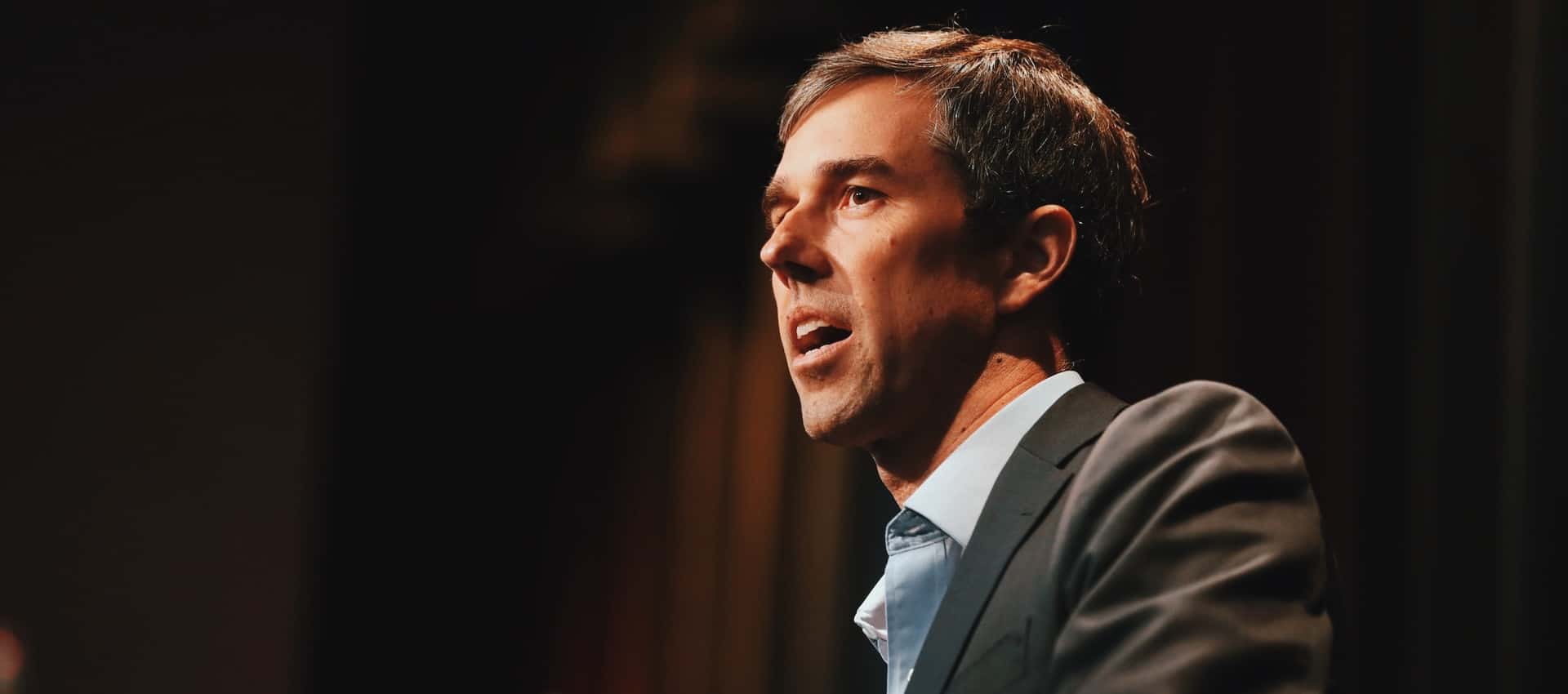
Beto O’Rourke
“In Texas we have a problem with broadband in rural communities…where farmers and ranchers and producers literally cannot get online, where people cannot start businesses in their own town or finish their education after high school because they cannot get online.”
Policy Positions Taken: 1/5
Internet Infrastructure
Broadband hasn’t taken a priority in O’Rourke’s campaign so far, and his campaign website doesn’t even mention broadband.
Digital Inclusion
He has voiced support for expanding access to broadband in rural areas, but hasn’t released any further policy platforms on the issue.
Net Neutrality
As a member of Congress, O’Rourke opposed the repeal of Net Neutrality in a 2017 Medium post, saying he was “disappointed in the FCC’s decision.” He co-sponsored the Save Net Neutrality Act that same year, which would have blocked the FCC’s repeal.
Municipal Broadband
No policy announced.
Digital Privacy
Digital privacy isn’t mentioned on his campaign website, but as a member of Congress, O’Rourke voted against the Cyber Intelligence Sharing and Protection Act (CISPA) in 2013 and against the Foreign Intelligence Surveillance Act (FISA) amendment in 2018.
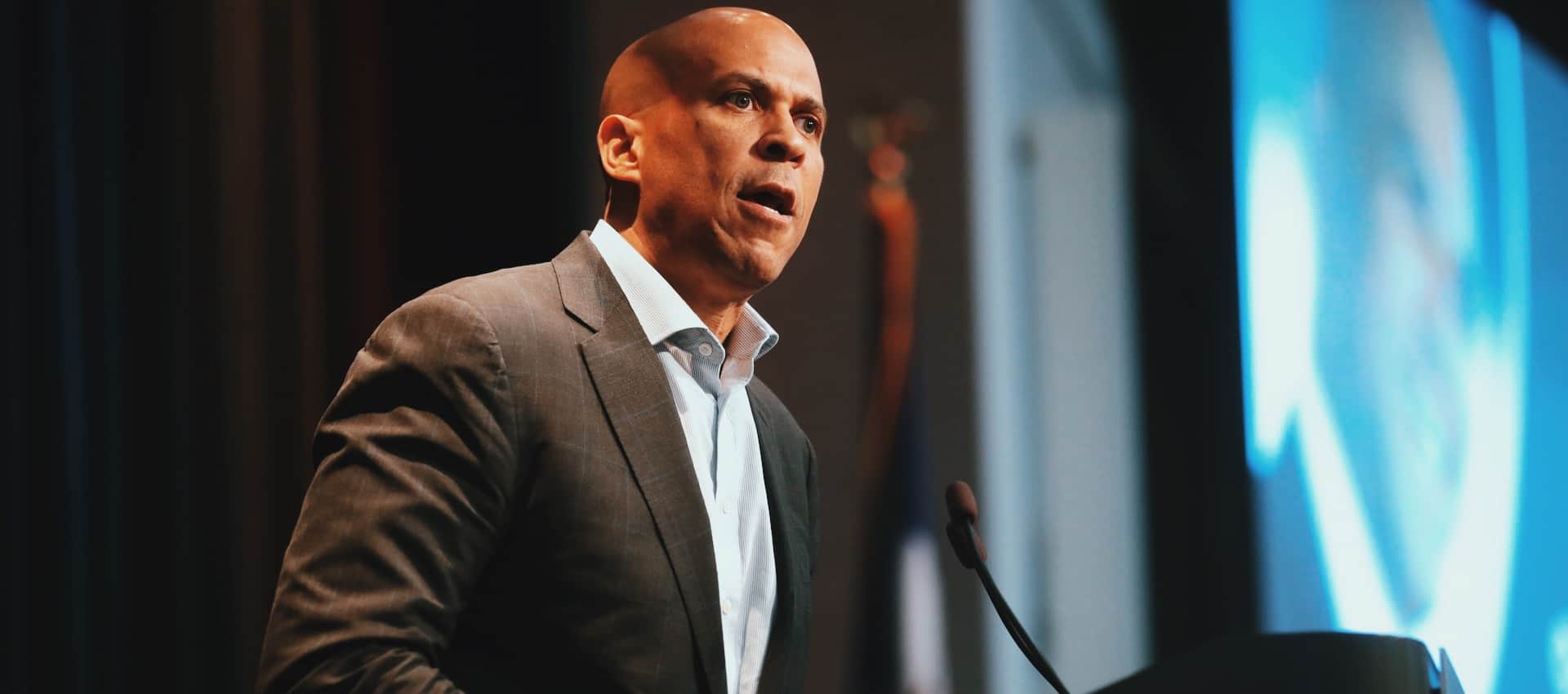
Cory Booker
“Internet access is an economic necessity in today’s economy, but too many communities lack reliable access.”
Policy Positions Taken: 2/5
Internet Infrastructure
Booker hasn’t made broadband a pillar of his campaign, and his campaign website doesn’t even mention broadband. But as a Senator, Booker urged then-FCC chairman Thomas Wheeler to modernize the Lifeline program to expand broadband access for eligible low-income individuals.
Digital Inclusion
No policy announced.
Net Neutrality
Booker has been a strong supporter of Net Neutrality. He was one of a handful of Senators who urged the FCC in 2014 to designate the Internet as a Title II utility. He has been a vocal opponent of FCC Chairman Ajit Pai, and described the repeal of Net Neutrality as “reckless.” He opposed the repeal of Net Neutrality in 2017, and signed onto a resolution in the Senate aimed at reversing the repeal.
Municipal Broadband
Booker supports municipal broadband and co-sponsored the Community Broadband Act in 2017, which would have amended the Telecommunications Act of 1996 to protect the rights of cities and localities to build municipal broadband networks.
Digital Privacy
Booker hasn’t proposed a digital privacy policy as part of his campaign, but he was a co-sponsor to the 2018 Data Care Act, which would create rules for how companies that collect user data can use it.
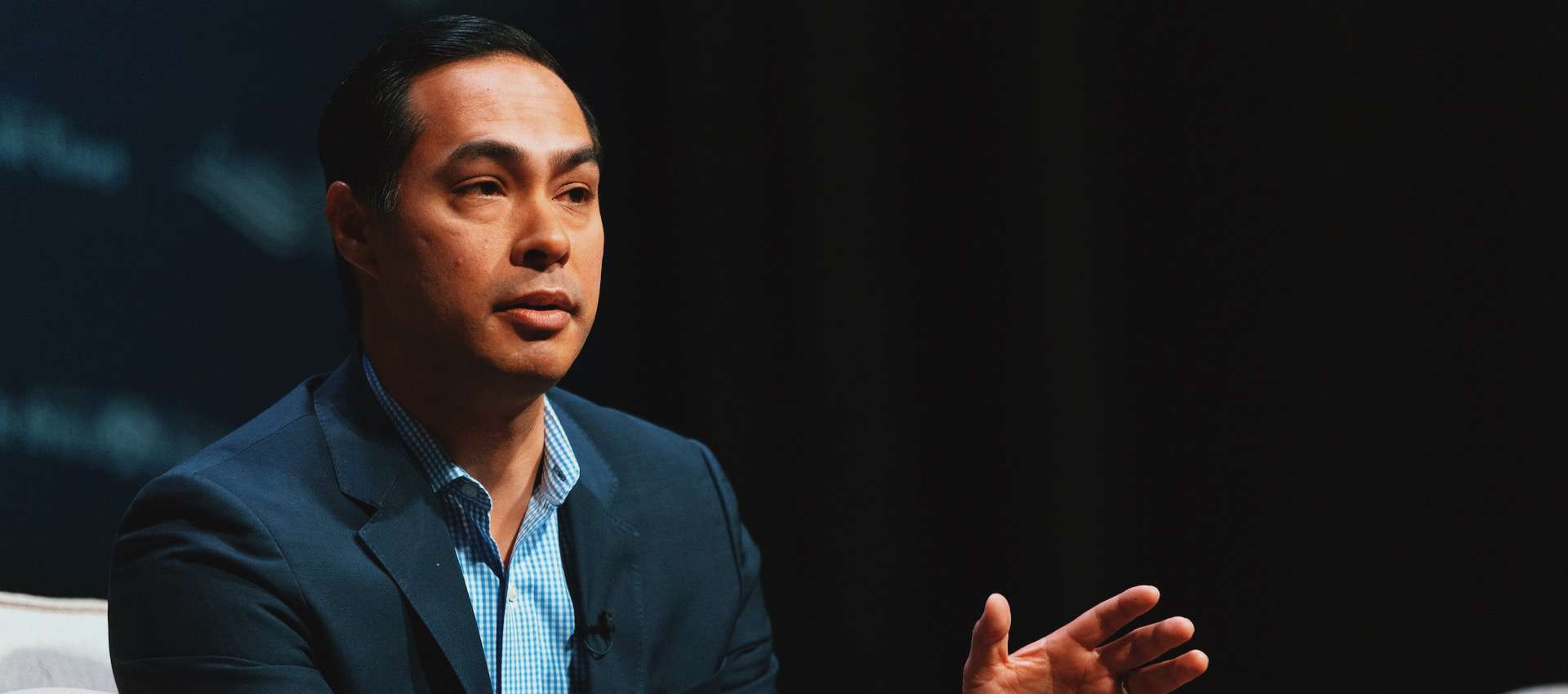
Julián Castro
“For America to be as competitive as possible, we need to make sure everyone has 21st-century tools to compete in the job market. Over half of low-income folks don’t have Internet access.”
Policy Positions Taken: 0/5
Internet Infrastructure
Broadband doesn’t appear to be part of Castro’s platform. He has made very few if any comments on broadband issues, and broadband doesn’t appear on his campaign website.
Digital Inclusion
As Housing and Urban Development Secretary under Obama, Castro launched an initiative called ConnectHome, which brought broadband to low-income and government-subsidized housing in 28 pilot cities across the U.S.
Net Neutrality
No policy announced.
Municipal Broadband
No policy announced.
Digital Privacy
No policy announced.
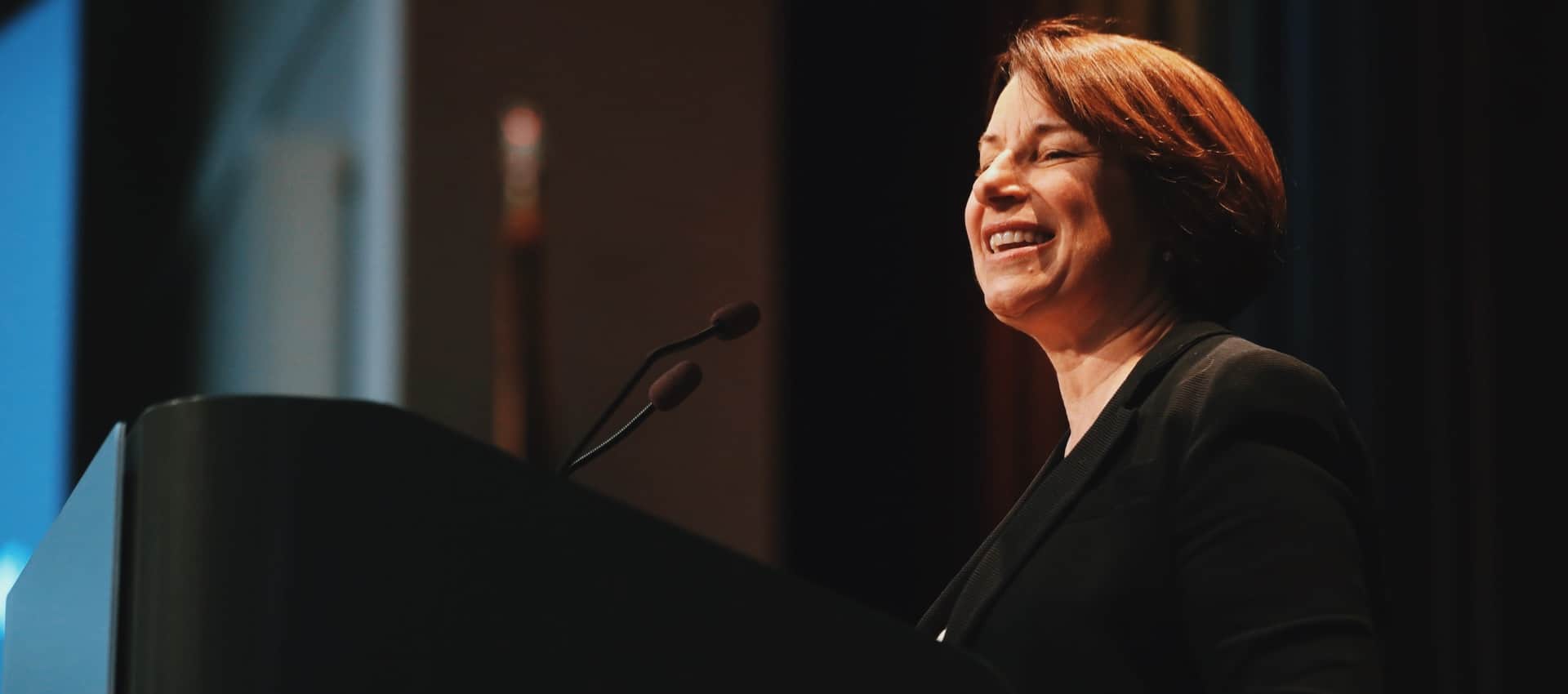
Amy Klobuchar
“It’s critical that every family in America have access to broadband Internet connection, no matter their zip code.”
Policy Positions Taken: 3/5
Internet Infrastructure
Klobuchar has pledged to connect “every household in America” to the Internet by 2022 if she becomes president. She also introduced legislation this year to improve broadband mapping accuracy. The Improving Broadband Mapping Act would direct the FCC to consider using consumer-reported data and state and local data from government entities in the national broadband map. “In order to deploy broadband nationwide, we need reliable data on where service exists and where it does not,” Klobuchar said earlier this year, during a panel hosted by the Senate Broadband Caucus that she co-chairs.
Digital Inclusion
Klobuchar says her broadband plan will “help close the urban-rural divide” by creating more accurate coverage maps and focusing on bringing broadband to lacking areas, but she hasn’t pegged down a monetary value for those investments — though during a Democratic debate she called for a $1 trillion in infrastructure, saying it should be “put it into rural broadband.”
Earlier this year in the Senate, she introduced the Broadband Interagency Coordination Act, which would see federal funds distributed for broadband expansion to unserved and underserved areas. Klobuchar also led the Precision Agriculture Connectivity Act, part of the 2018 Farm Bill, that aims to identify coverage gaps and encourage broadband expansion to farms and ranchland.
Net Neutrality
Klobuchar has been an advocate for Net Neutrality during her time in the Senate, and received recognition for her questioning of Brett Kavanaugh on the question of Net Neutrality during his confirmation hearing. She first mentioned her intention to “guarantee” Net Neutrality during her presidential campaign announcement speech, but hasn’t offered any more details on the proposal.
Municipal Broadband
No policy announced.
Digital Privacy
Klobuchar co-sponsored the bipartisan Social Media Privacy Protection and Consumer Rights Act, a bill that would provide consumers more control over how their personal data is used and require companies to “offer remedies” when a breach occurs. Klobuchar was also a co-sponsor to the 2018 Data Care Act, which would create rules for how companies that collect user data can use it. “Way too many politicians have their heads stuck in the sand when it comes to the digital revolution. ‘Hey guys, it’s not just coming. It’s here.’ If you don’t know the difference between a hack and Slack, it’s time to pull off the digital highway,” she said at a campaign rally in Minnesota. “What would I do as president? We need to put some digital rules of the road into law when it comes to people’s privacy.”
Republican Candidates
The three Republican challengers to President Donald Trump have so far focused more on attacking Trump and his governing style, rather than challenging him on his policies, which are popular among large swaths of the Republican electoral base.
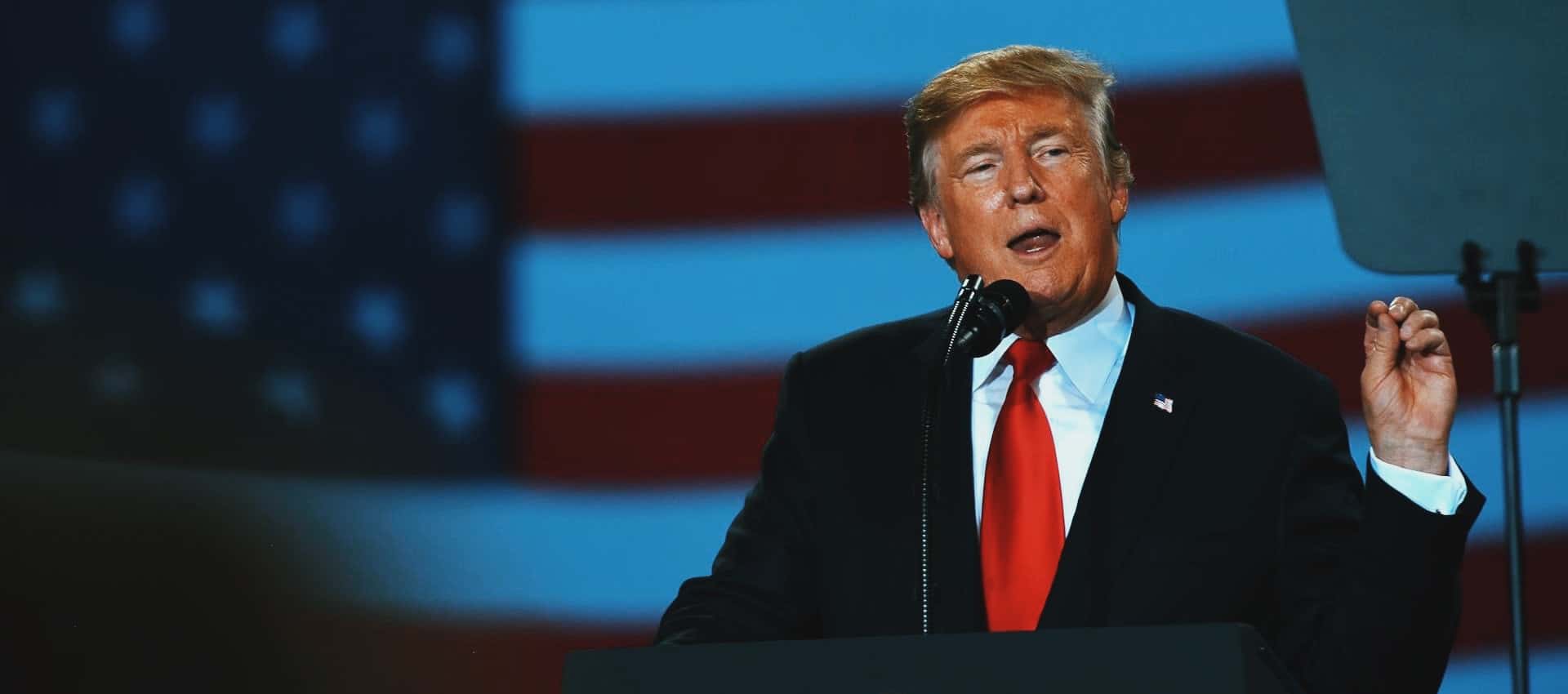
Donald Trump
“We’re losing a lot of people because of the Internet. We have to see Bill Gates and a lot of different people that really understand what’s happening. We have to talk to them about, maybe in certain areas, closing that Internet up in some ways. Somebody will say, ‘Oh freedom of speech, freedom of speech.’ These are foolish people.”
Policy Positions Taken: 1/5
Internet Infrastructure
Trump doesn’t have a great record of promoting broadband for citizens. He has preferred to rely on commercial ISPs to expand broadband infrastructure using private and public dollars and incentives. His budgets have seen funding cuts to federal agencies and departments that negatively impacted government-supported broadband programs — though his administration has given the NTIA a slight funding bump to help expand wireless Internet infrastructure.
Digital Inclusion
Expanding access to broadband in rural communities was one of Trump’s campaign promises in 2016. The Trump administration allocated $600 million last year for expanding broadband through executive orders, FCC action and a USDA pilot broadband program. The White House has touted efforts help ISPs build out broadband networks in rural areas by removing regulatory red tape. But Trump’s 2020 campaign hasn’t listed any new broadband proposals.
Net Neutrality
Trump doesn’t support the idea of Net Neutrality. He made repealing Net Neutrality a priority for his administration in 2017, with the help of his FCC Chairman Ajit Pai. The Trump White House threatened to veto the Save the Internet Act, a bill aimed at restoring Net Neutrality by codifying it into law. His administration also sued the state of California in 2018 in an effort to block the state from implementing its own Net Neutrality rules.
Municipal Broadband
Trump hasn’t articulated views on municipal broadband specifically for his 2020 campaign, but his administration has taken steps to prevent municipal governments from regulating broadband within their communities.
Digital Privacy
In 2017, Trump signed into law a resolution repealing Obama-era consumer data protections that required ISPs to obtain customer permission before collecting and sharing data to third parties. But in 2018, the Trump administration said it was working on a new set of consumer data privacy policies.
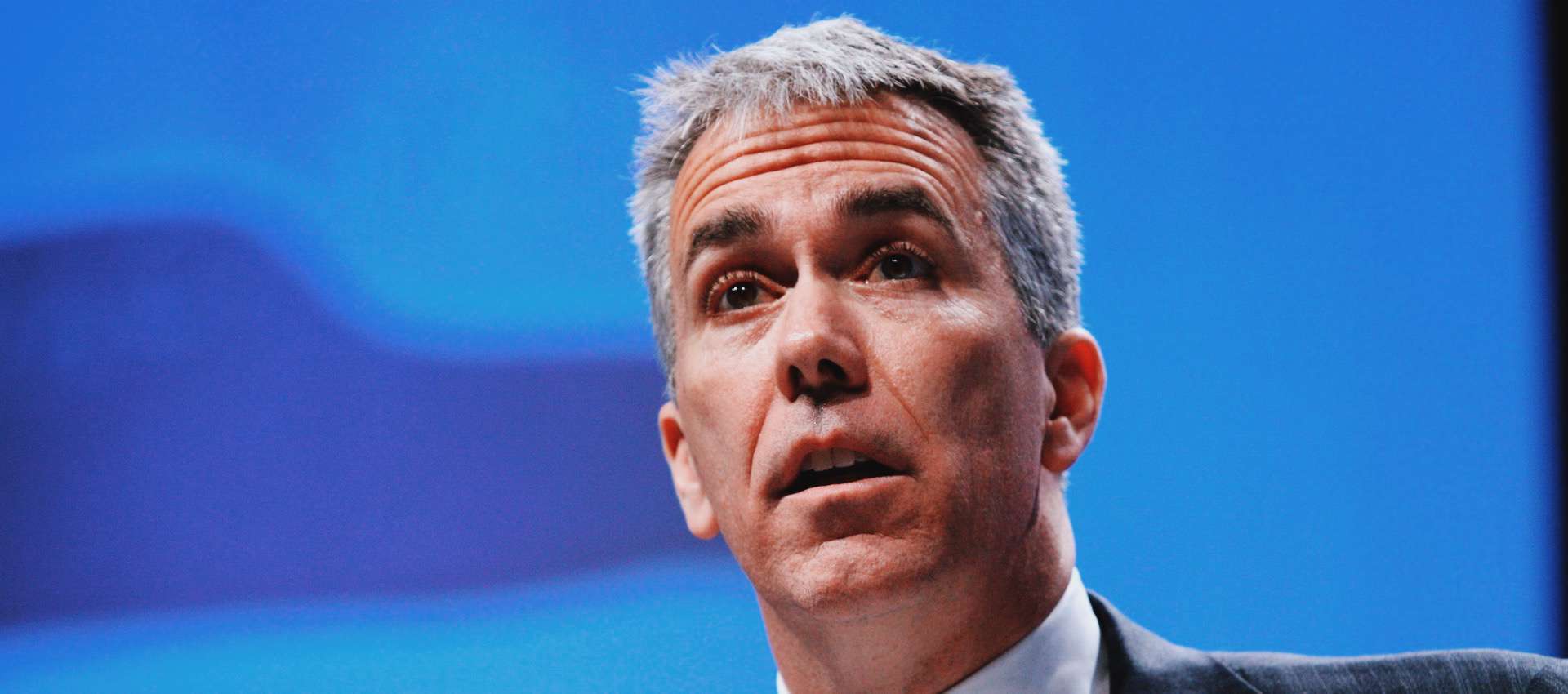
Joe Walsh
Joe Walsh is a former one-term member of Congress and a conservative talk radio host. His bare bones 2020 presidential campaign website doesn’t list his stances on pressing broadband issues such as closing the digital divide or data privacy; and he hasn’t fleshed out much of his platform in the handful of interviews he’s had with media since announcing his bid in August. He has said be believes this election “is not about the issues.”
“I was told the world was going to end if #NetNeutrality was repealed, that it would be the end of the Internet as we know it. Yet, after all the hysterics, here we are.”
Policy Positions Taken: 1/5
Internet Infrastructure
No policy announced.
Digital Inclusion
No policy announced.
Net Neutrality
While he hasn’t released an official policy stance on Net Neutrality for his presidential bid, he did seem to support repealing Net Neutrality in a tweet.
Municipal Broadband
No policy announced.
Digital Privacy
No policy announced.
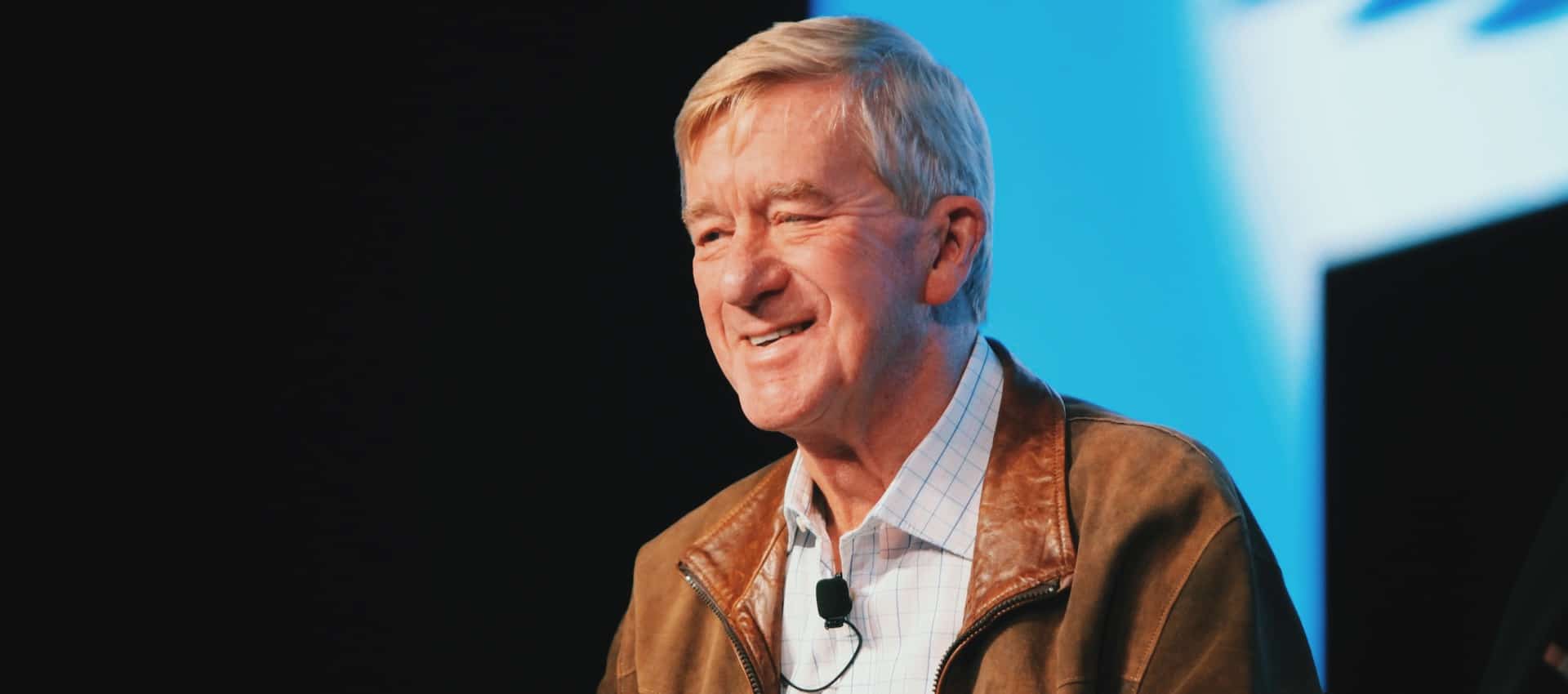
William Weld
Weld served as a Rebublican governor of Massachusetts in the 1990s, and was a Libertarian Vice President candidate in 2016. Weld, like Walsh, hasn’t offered up any concrete policy platforms on his campaign website. In the few media appearances he’s had since announcing his bid in April 2019, he hasn’t mentioned broadband.
Policy Positions Taken: 0/5
Internet Infrastructure
No policy announced.
Digital Inclusion
No policy announced.
Net Neutrality
No policy announced.
Municipal Broadband
No policy announced.
Digital Privacy
No policy announced.
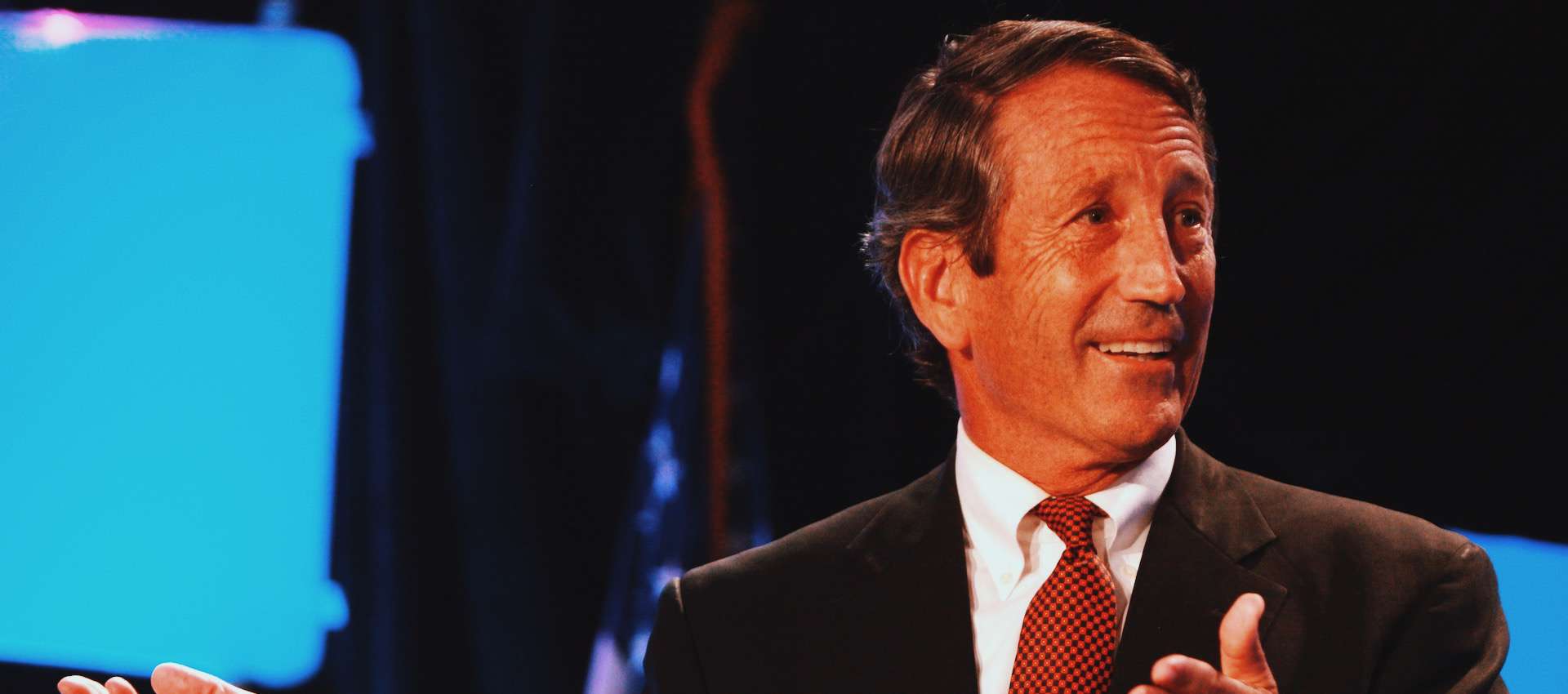
Mark Sanford
Sanford has served as a Representative in South Carolina and was the state’s Governor between 2003 and 2011. Sanford just announced his bid earlier this month, and though his campaign website offers more policy proposals than the other two Republican challengers, it does not mention broadband.
Policy Positions Taken: 0/5
Internet Infrastructure
No policy announced.
Digital Inclusion
No policy announced.
Net Neutrality
No policy announced.
Municipal Broadband
No policy announced.
Digital Privacy
No policy announced.

